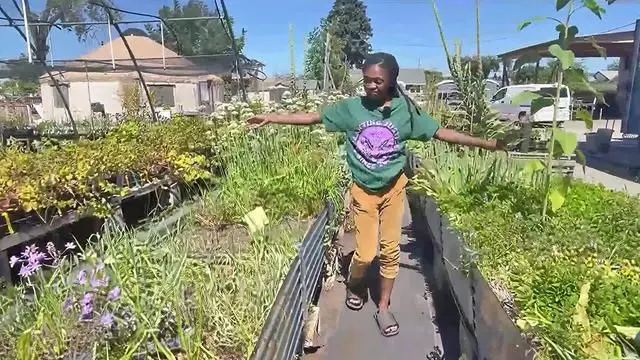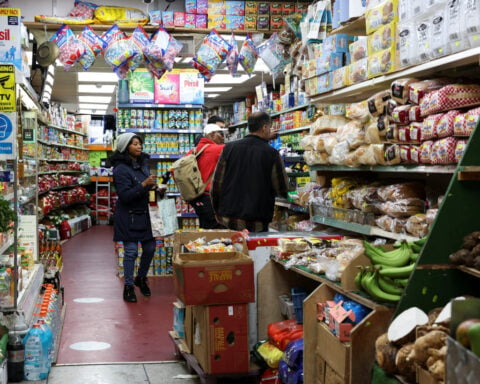EL SOBRANTE, California (KPIX) -- There is a growing push to get healthy foods into lower income communities and it's changing people's views about how and where their food is grown. Now, an agricultural non-profit in Oakland is concentrating its efforts to transform one neighborhood in Contra Costa County.
Like a lot of small towns, El Sobrante doesn't often get a lot of new things. In fact, the town's Spanish name actually translates to "the leftovers." So, it seemed like the perfect place for a group called Planting Justice to create a new weekly farmers market.
"It was an agricultural community for a long, long, long time. So, having this come back ... there is this sort of welcome, familiar feel," said Planting Justice market manager, Sam Lustig.
The property along Sobrante Avenue is the former site of the Adachi Family nursery which closed in 2017.
"And this was slated to become another gas station and car wash which is about the last thing this community needs," Lustig said.
Instead, Planting Justice bought the property and is building a complex called "The Good Table" which will include a new garden and nursery and, inside, a cafe decorated with recycled wood from Castlemont High School's old bleacher seats. At the restaurant, people will only be asked to pay "what you can." That spirit extends to the farmers market as well, with vendors being charged no fees to participate. That works well for food vendor Hal Stevens as he experimented with a new black-eyed pea and portabella mushroom sandwich.
"Not paying fees, being able to just come and build your customer base is great," he said. "It builds your brand and looks excellent and makes the community look good."
Anything the vendors can't sell will be purchased by the non-profit for distribution in its new mobile food truck or used as ingredients for food and baked goods prepared in a soon-to-be-constructed commercial kitchen. It's all part of the mission of Planting Justice, which is headquartered at a sprawling commercial nursery in East Oakland. Years ago, they sponsored a gardening program inside San Quentin State Prison.
"That is what led into our re-entry program," Lustig said. "Because folks who had participated in that program were coming out and they had no place to go."
So far, the nursery has created more than 165 living-wage jobs for people who were formerly incarcerated, people like Simone Robinson who is now the "Mother Lead" at the Oakland nursery.
"Coming here and being with the plants, taking care of the plants, watching things grow, inadvertently makes you grow!" she said.
If there is a common theme in the endeavor, it's that nothing should go to waste --not food, not wood and certainly not people. Where better to cook up something new than a place called "leftovers?"
Planting Justice relies on grants and public donations and currently employs about 50 people with living wage jobs.

 India's navy launches submarine, warships to guard against China's presence in Indian Ocean
India's navy launches submarine, warships to guard against China's presence in Indian Ocean
 UK inflation unexpectedly eases in December, which could reduce pressure in bond markets
UK inflation unexpectedly eases in December, which could reduce pressure in bond markets
 Body count from South African mine siege rises to 60
Body count from South African mine siege rises to 60
 Question on ASEAN stumped Hegseth at Senate hearing. What is it and why is it important?
Question on ASEAN stumped Hegseth at Senate hearing. What is it and why is it important?
 US importers rush in goods from China as Trump tariff threat looms
US importers rush in goods from China as Trump tariff threat looms
 Novak Djokovic breaks a tie with Roger Federer for the most Grand Slam matches in tennis history
Novak Djokovic breaks a tie with Roger Federer for the most Grand Slam matches in tennis history
 China's RedNote: what you need to know about the app TikTok users are flocking to
China's RedNote: what you need to know about the app TikTok users are flocking to
 British author Neil Gaiman denies ever engaging in non-consensual sex as more accusers come forward
British author Neil Gaiman denies ever engaging in non-consensual sex as more accusers come forward








